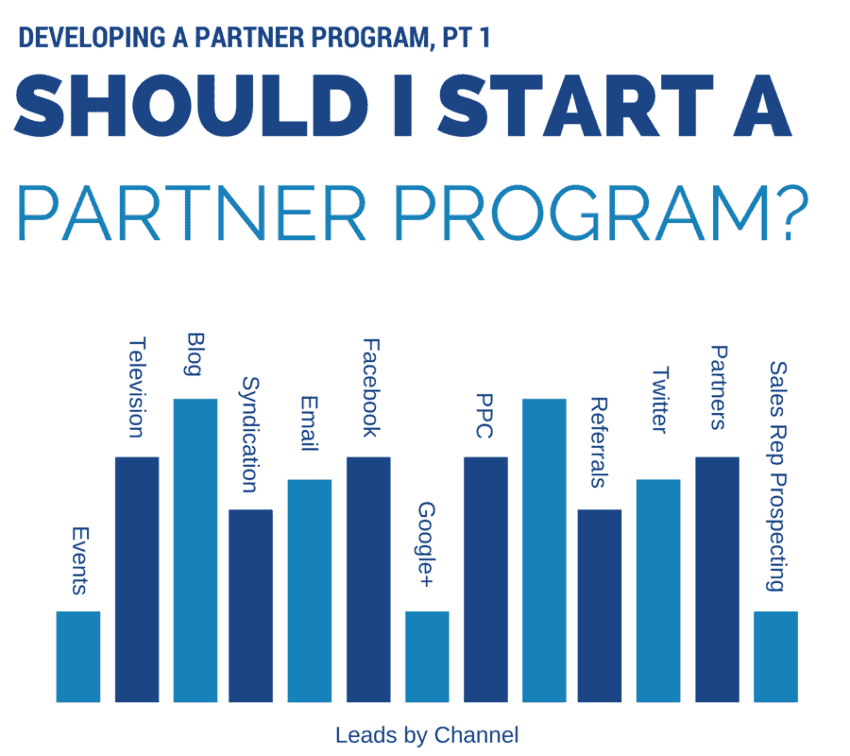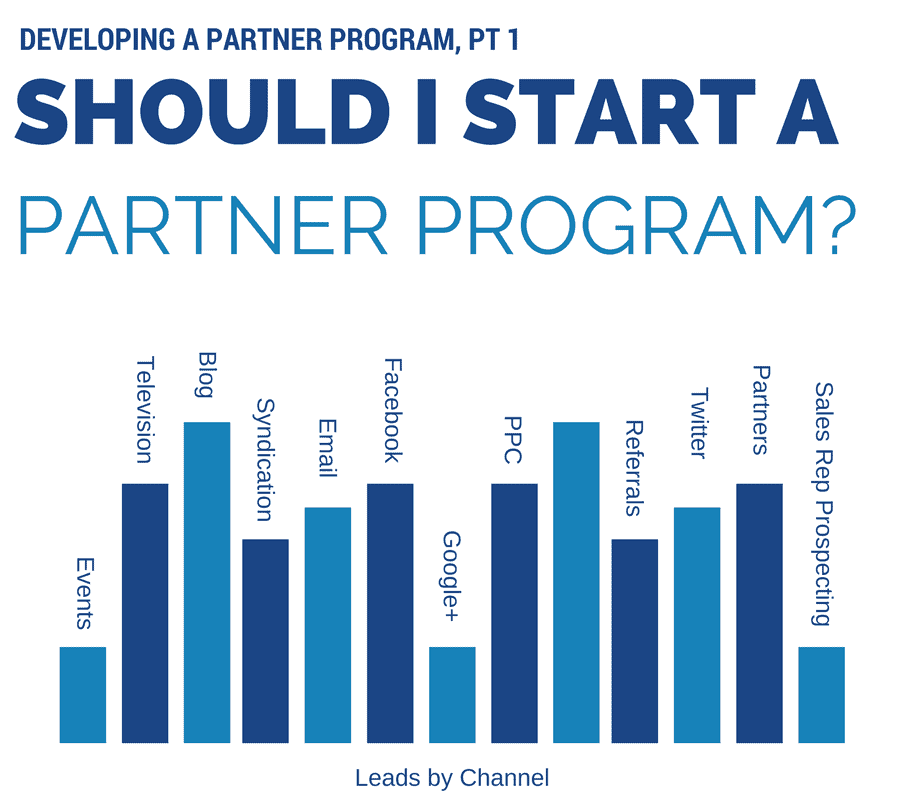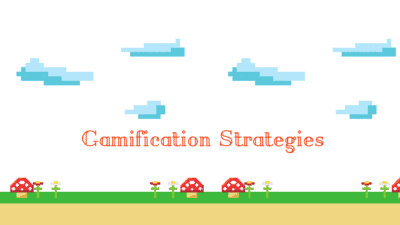Developing a Partner Program, pt 1: Should I start a partner program?

Does your product integrate with a lot of other products? Do a lot of other products integrate with your product or service? Are there a lot of companies that offer a product or service that could be considered complementary to yours? Interested in how working with those companies might expand your horizons and increase pipeline? Then it might be time to consider developing a partner program.
What is a Partner Program?
A partner program involves building relationships, training and incentives to further expand the reach of your product. You can either give partners the ability to sell your product or service directly to their prospect or your internal sales team can be brought into the sales process to deal with the intricacies of the sale on your end.
If someone joins your program, it’s usually to make themselves more marketable. As a partner, they will be looking for leads and to leverage your brand with their existing and prospective customers. Your partners will be able to more fully serve their customers and clients through leveraging your solution to help solve more problems, without having to do all of the solution development themselves.
A partner program can be just what you need to jumpstart your pipeline. It opens up new channels and expands your reach. That being said, it’s important to fully consider the pros and cons to starting your very own partner program. A poorly planned or managed program can be hard on you, your employees, your partners, and your business.
Considerations for Starting a Program
What is a deal from a partner worth?
If you’re equally as likely to close the same deal on your own, without your partner, deals coming in from your partner program may not be as valuable to you. A deal’s a deal, of course, but when the partner isn’t really bringing anything extra to the table, it means you might not get enough out of a partner program to warrant the work.
When determining whether or not it makes sense to make a partner program, you can’t just look at the deal itself. You have to look at:
- The cost of acquiring a new lead
- The time and resources used in marketing along the standard sale cycle
- Time to close as compared to the average
- How much effort your sales team put in
- The expected, average number of deals per partner per year.
- The average lifetime value of a customer
Remember, it’s all about long-term ROI.
How much will I need to dedicate to maintaining the partner program?
The more complex of a program, the more resources you’ll need to dedicate to it. Even if your program starts small, there are typically a lot of day-to-day requirements that need to be handled. From processing partner applications to getting them set up in the business systems you use, managing the deals they bring in, and organizing partner-focused strategies and communications, it’s a lot of work. You’ll need to determine if you have someone on your team that you can dedicate to managing the program. If not, do you have the headcount to add someone? What about growth potential? Many medium-to-large sized companies have whole teams managing their partner programs including program directors, Partner Account Managers, and Marketing Communications. Has your company thought about growth potential vs. headcount for this particular endeavor?
If the answer to all of this is no, it’s probably wise to put the on the brakes, at least temporarily. Much like putting a half-baked product on the market, a poorly managed partner program can lead to a lot of negativity. Frustrated partners may stop working with your company and start telling their clients not to work with you, while frustrated employees may leave because they’re overworked and get burnt out. Frustrated execs can then end the program and never revisit the idea because it left a bad taste in their mouths.
How much benefit can I get out of a partner program?

Partners can be incredibly helpful in rapidly growing your business. We’ve worked with companies that were growing at 200-300% per year while leveraging partners to drive up to 75% of their net new business. They did this while selling up to 40% of their quarterly revenues into their existing installed base via their partners. That’s a huge amount of legwork that the company didn’t have to manage (or fund) directly.
Supporting this level of growth can be very challenging if you are not well prepared for it. You can manage this somewhat by limiting the number of partners you add or their size and reach (partners with a billion dollars in revenue require more resource and product vs partners with $10 million in revenue.)
A partner program should be a well-thought out, well-executed, and well-managed part of your business. When done correctly, they can really bolster your business– and not just through sales. If you’re truly interested in starting a partner program for your business, make sure to take the time to plan the details and leave no stone unturned.
Check out Developing a Partner Program, pt 2: Why should your partners join? where we’ll talk about the next step in planning a partner program.
You Might Also Enjoy These Posts
Demand Generation vs Lead Generation
Gamification Strategies: Badges in B2B Marketing
Welcome To DemandZEN
DemandZEN specializes in Account-Based Demand Generation and solving the challenges around finding, engaging and converting target accounts into real opportunities for B2B Technology and Services companies.


